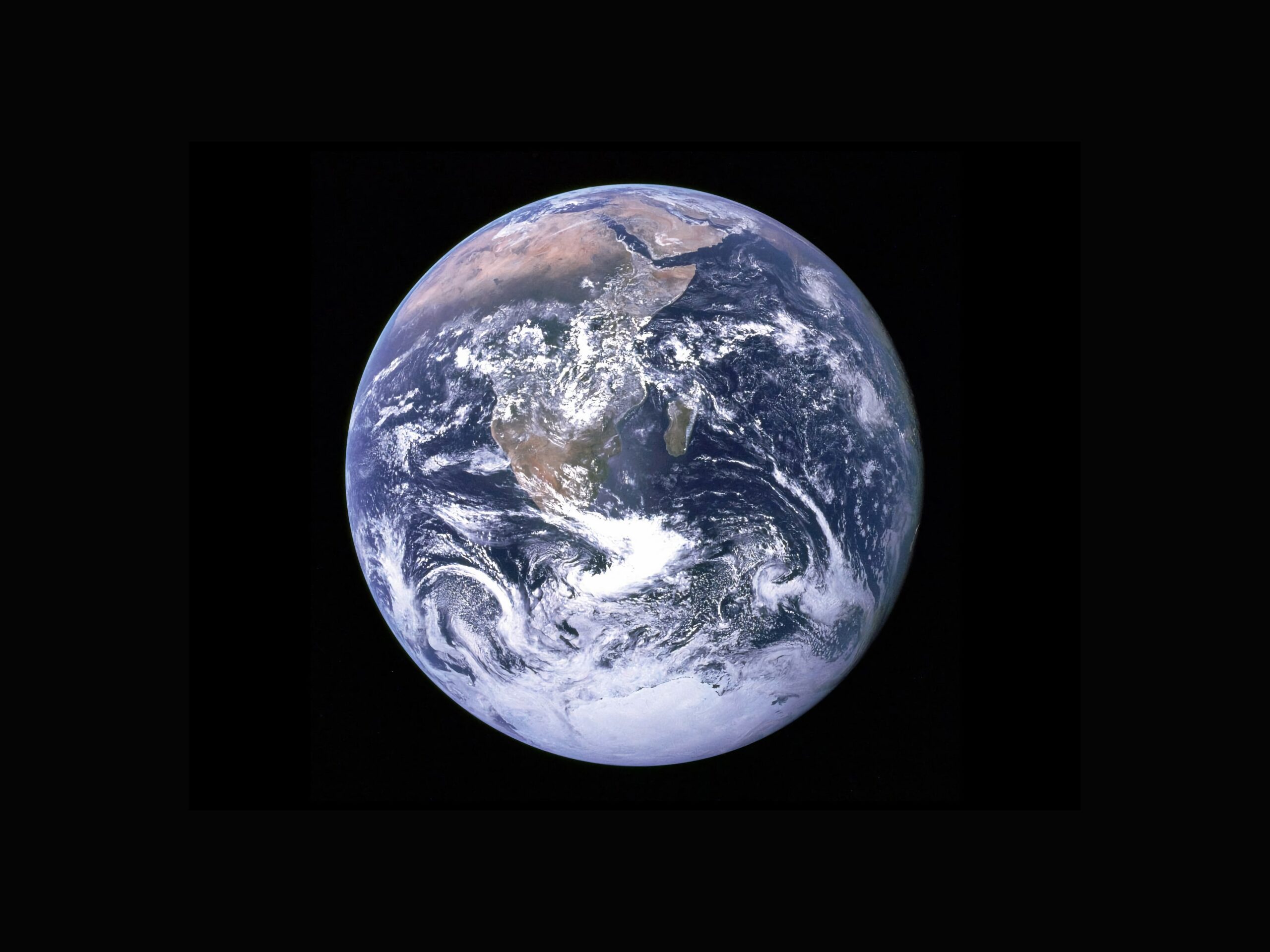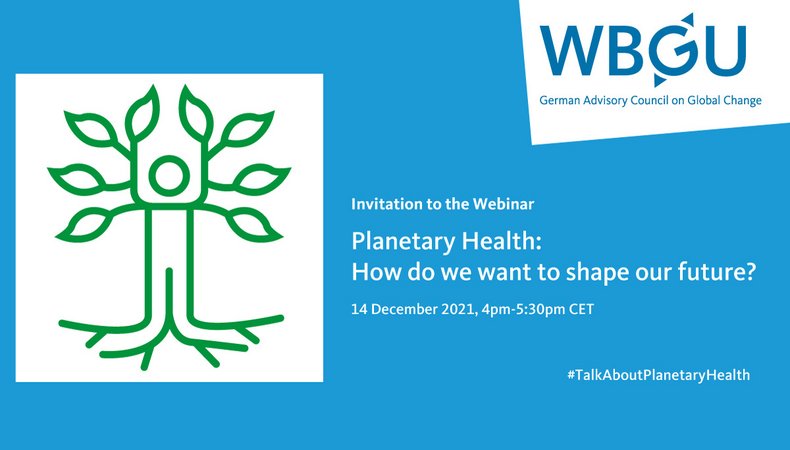
14.12.2021 at 16:00 – 17:30 CET
The WBGU recently published a discussion paper “Planetary Health: What we need to talk about”. The aim of this four-pager is to stimulate a discussion on the role of health in the global transformation towards sustainability. The insights gained from this dialogue process are incorporated into the Advisory Board’s discussions on its new flagship report (forthcoming early 2023). The public presentation and discussion of the new paper on December 14 is part of this dialogue process (the presentation of the paper in German will follow in early February 2022).
Programme
Impulse statement
Sabine Gabrysch, WBGU, Professor for Climate Change and Health at Charité – Universitätsmedizin Berlin and Potsdam Institute for Climate Impact Research (PIK)
Panel discussants
- Howard Frumkin, Professor Emeritus of Environmental and Occupational Health Sciences at the University of Washington
- Cristina Romanelli, Programme Officer, Biodiversity, Climate Change and Health, WHO, Montreal
- Ivar A. Baste, Special Advisor, Norwegian Environment Agency, report lead Making Peace with Nature (UNEP), Past IPBES Bureau
- Sabine Gabrysch, WBGU, Charité – Universitätsmedizin Berlin and PIK
Moderator: Maike Voss, German Alliance for Climate Change and Health (KLUG)
What it is about
The COVID-19 pandemic has shown us how vulnerable we are and how closely connected we are with Nature. Health cannot be taken for granted. Do we take the prerequisites for healthy living seriously enough? Or are we, as a civilization, systematically jeopardizing our health?
Healthy people as part of a healthy planet Earth
In recent decades, as prosperity has increased, human health has improved worldwide; yet not everyone has benefited. In poorer population groups, infectious diseases and maternal and child mortality still cause a great deal of avoidable suffering. Increasingly, however, the gains in prosperity are themselves having a negative impact on health: on the one hand as ‘too much of a good thing’ through the overconsumption of food and the displacement of physical activity from everyday life, on the other as harmful side effects in the form of air pollution and environmental toxins. As a result, lifestyle diseases such as overweight, diabetes, cardiovascular and respiratory diseases are on the rise worldwide. Last but not least, our resource-intensive way of life, with its immense emissions of greenhouse gases, the destruction of natural habitats and increasing pollution of land and sea, has led to a planetary crisis. It threatens the natural life-support systems on Earth and thus the health of all people. Heat waves, disastrous floods and pandemics drastically demonstrate to us that our society is dependent on functioning ecosystems and a stable climate. The planetary crisis could furthermore threaten the cohesion of our societies and overburden healthcare systems. But the crisis also gives us an opportunity to rethink our idea of prosperity and progress, to break habits and make our societies fairer, more sustainable and healthier. Because the increasing environmental and health problems often have common roots, synergies can be found in approaches to solving them. We are at a crossroads. Society, business and politics must assume responsibility and initiate a comprehensive transformation that leads to healthy human life on a healthy planet.
Ten key issues to debate
WBGU identified ten key issues in dealing with planetary health and developed a couple of questions for each issue (see discussion paper). These questions are intended to stimulate a debate on this topic and to encourage people to get involved in these developments. In the course of its current work on a report dealing with the relationship between health and global sustainability, the WBGU will organize various events at which the above questions can be discussed.

Planetary Health: What we need to talk about
Video and Discussion paper
Photo: NASA